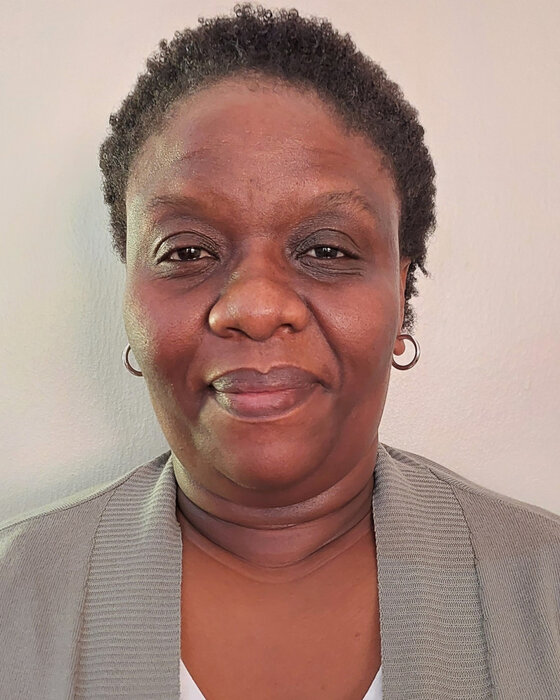

South Africa
GEO Principals


Focal Points


GEO Engagement and Contributions
Engagement History with GEO
South Africa is a founding member of GEO, and has maintained active participation in GEO governance since its inception in 2005, representing African interests in global Earth observation governance. It serves as one of the rotating Co-Chairs of the GEO Executive Committee.
South Africa has supported the GEO Trust Fund through voluntary annual contributions and has provided substantial in-kind contributions through hosting regional workshops, capacity building programmes and technical expertise. South Africa also provides financial support to the AfriGEO Secretariat.
The lead government agency engaging with GEO from South Africa is the Department of Science, Technology and Innovation (DSTI), with support from the National Earth Observations and Space Secretariat (NEOSS), hosted by the Council for Scientific and Industrial Research (CSIR), and the South African National Space Agency (SANSA).
National coordination of GEO's activities is achieved through NEOSS, which manages SA-GEO, the national framework for earth observation activities.
South Africa's participation in GEO involves multiple government departments and institutions including:
- Department of Forestry, Fisheries and Environment (DFFE)
- Department of Land Reform and Rural Development (DLRRD)
- Department of Water and Sanitation (DWS)
- Department of Agriculture (DoA)
- South African National Space Agency (SANSA)
- Council for Scientific and Industrial Research (CSIR)
- South African Weather Service (SAWS)
- Agricultural Research Council (ARC)
- South African Environmental Observation Network (SAEON)
- University of Witwatersrand (Wits)
- University of Cape Town (UCT)
- Stellenbosch University
South Africa hosted the 2023 GEO Week and Ministerial Summit in Cape Town, and previously in 2007. It also hosted the GEO Work Programme Symposium in 2017 in Tshwane, Pretoria.
Participation in GEO Work Programme
South Africa participates in several GEO Work Programme activities, with a focus on disaster risk reduction, agriculture and food security, and water and land sustainability.
South Africa plays a vital role in disaster risk reduction through strong contributions to key GEO Work Programme activities. As a core partner of DE Africa hosted by its National Space Agency (SANSA), the country supports delivery of open, analysis-ready EO data to monitor floods, droughts, and land and water resources across the continent. Through GEO Mountains, South African institutions, including the South African Environmental Observation Network (SAEON), contribute expertise and data for mountain climate hazard monitoring in regions such as the Southern Drakensberg and Maloti Mountains, enhancing water security and ecosystem resilience. South Africa’s involvement in Night-Light further supports monitoring of urban vulnerability, infrastructure resilience, and recovery dynamics using night-time light data.
Additionally, as a founding leader of AfriGEO, South Africa actively promotes the use of Earth Intelligence for multi-hazard early warning, drought and flood monitoring, and strengthening disaster preparedness across Africa. These efforts demonstrate South Africa’s commitment to inclusive, data-driven risk management and regional resilience.
South Africa participates in the following GEO Work Programme activities:
- GEO-LDN
- GEOGLOWS
- GEOGLAM
- GEO MOUNTAINS
- GOS4M
- NIGHT-LIGHT
- DE AFRICA
- EO-NREN
- GEO-UAV
Role of Private Sector in GEO
South Africa, through SA-GEO, promotes public-private partnerships and the involvement of the private sector to foster EO solutions, and achieve Earth Intelligence for All through:
- Space industry development programmes through SANSA
- Public-private partnerships in satellite manufacturing and services
- Technology transfer initiatives supporting local EO service providers
- Small satellite development programmes involving industry
- Downstream services development for mining, agriculture and environmental sectors
- Strengthening public and private sector (SMMEs) within the EO sector through funding instruments such as the NEOFrontiers Fund.
- NEOSS promotes private sector engagement in GEO and SA-GEO and actively provides a coordination mechanism within the EO sector at government, public, research, academia and private sector levels.
Participation in Regional Caucus - AfriGEO
South Africa plays a pivotal role within the AfriGEO caucus by facilitating the integration of continental and global Earth observation activities with local implementation. It also plays a key role in contextualising and championing African priorities at the global level.
Earth Observation Capabilities
South Africa has developed significant EO capabilities, including:
- SANSA Earth Observation Programme: A comprehensive satellite receiving, processing and distribution capabilities including partnerships with international satellite operators. The programme also advances research and applications development in remote sensing for natural resource management.
- South African Earth Observation Strategy: A national framework for coordinated Earth observation activities supporting sustainable development priorities
- ZASatProgramme: South African micro and nano satellite programme for technology demonstration and capacity building in space engineering
- SAEON Observation Networks: A comprehensive environmental monitoring network supporting long-term ecological research.
- CSIR EO Programmes include the Precision Agriculture Information System, etc.
National Policy and Implementation Priorities
Development Cooperation Priorities
South Africa's development cooperation priorities focus on:
- South-South cooperation: A leading continental initiative through NEPAD and African Union frameworks promoting technology transfer and capacity building.
- Sustainable development: Implementing the National Development Plan with focus on eliminating poverty and reducing inequality by 2030.
- Regional integration: Supporting Southern African Development Community (SADC) integration and continental development through the African Continental Free Trade Agreement.
- Climate resilience: Building adaptive capacity in agriculture, water resources, and urban systems across the region.
- Technology innovation: Promoting indigenous innovation systems and technology transfer for sustainable development.
In addition, South Africa's key priorities include mobilising Earth observation tools and services to support climate resilience, food security, disaster response, and urban development, while interlinking Earth observation policies with national and international research and development priorities.
Policy Priorities on Environment and Climate
South Africa's key environmental policy priorities include:
- Just Energy Transition: Transitioning from coal-dependent economy to renewable energy systems while ensuring social justice and employment through the Just Energy Transition Partnership.
- Water security: Implementing the National Water Security Framework addressing water scarcity and quality challenges exacerbated by climate change.
- Biodiversity conservation: Protecting South Africa's exceptional biodiversity through expanded protected area networks and ecosystem restoration programmes.
- Climate adaptation: Implementing the National Climate Change Adaptation Strategy focusing on agriculture, water resources, and coastal zone management.
- Sustainable mining: Transforming the mining sector through sustainable practices and post-mining rehabilitation.
- Urban sustainability: Developing climate resilient cities through integrated urban planning and green infrastructure.
Technical Cooperation Priorities
Regional Support Office: SANSA became the 28th Regional Support Office for UN-SPIDER. SANSA, in collaboration with UNOOSA and South African National Disaster Management Center, provides capacity building, outreach and technical support on the use of space products to support disaster management and emergency response efforts.
Space for Climate Observatory: SANSA joins the international efforts on the development of tools for climate change, mitigation and adaptation using Earth observation technologies. In collaboration with local stakeholders, it conducts workshops to create awareness of available data and its use to support climate change response efforts.